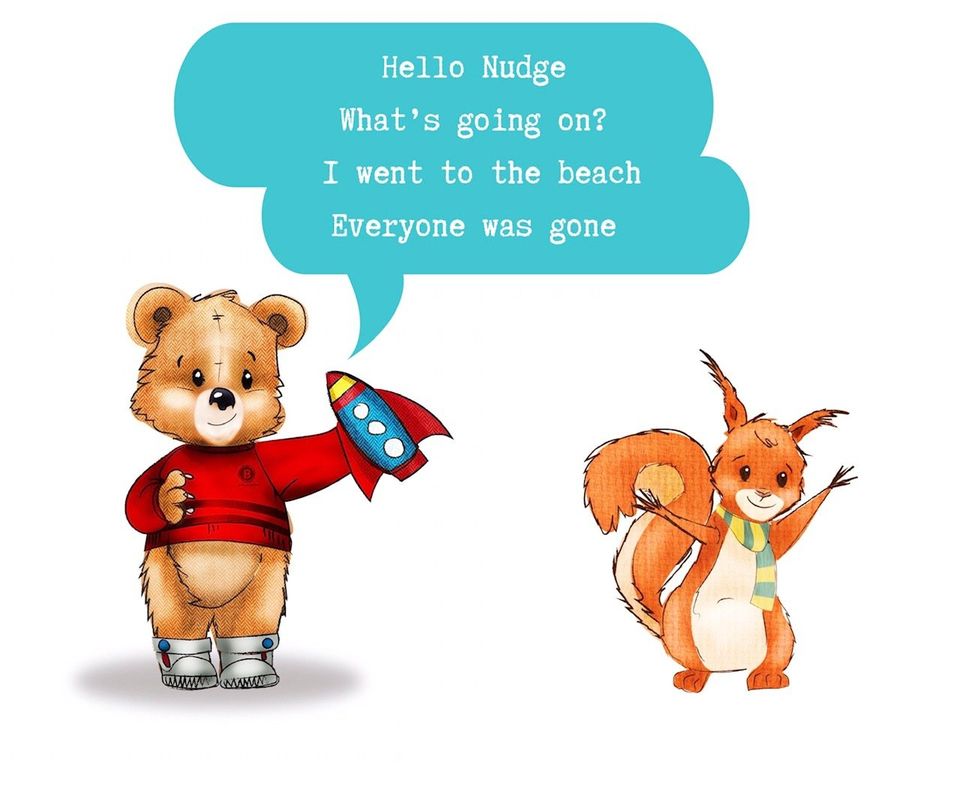A Reflective “Bagoon"
Sarah Mundy • 15 April 2020
My “new” life involves a lot of change, as I’m sure does yours. When we first went into lockdown, the predictability, which is so helpful for young children, fell by the wayside as my partner and I tried to negotiate who was the more important keyworker and who should stay-at-home with the children (I seem to have ended up with both roles!).
We have now fallen into a new routine with just the five of us (plus a cat, some aqua dragons, and a huge amount of clutter) within our four walls. Despite still working, my load has much reduced and I’m actually getting into the slowness of life and finding time to breathe. My normal rush home from work without having prepared dinner has turned to cooking three proper meals three times this week. A creativity I didn’t know existed has risen and my children and I have come up with our own graffiti tags for the back wall (the end product isn’t quite what I’d imagined), created a clay fish treasure hunt and had great fun with quizzes and board games. I hadn’t found time for enough of these things before now.
Before I go on, and you start thinking this is one of those manufactured blogs where I am painting the perfect family life even at such a difficult time, it’s important to let you know that it’s not harmonious in my house much of the time. Sibling rivalry can be extreme with someone always feeling left out and, no matter what new and exciting things I introduce, I can’t quite live up to hanging out with peers which my oldest two are desperately in need of. The reluctance to help around the house is mind-boggling and my toddler has hit his terrible twos with a vengeance (I think this is also lockdown induced). The days can feel very very long.
Although I love and miss city life (where I have lived most of my life) right now there is nowhere I would rather be than home in Cornwall where we are lucky enough to be able to cycle to the beach for our daily exercise. We came across the most beautiful lagoon (quickly renamed a “bagoon” by my now three-year old) when we last visited the beach. It was tropical and warm and we let ourselves relax into the water – pretty idyllic especially within the context of the world being in crisis.
Then I looked around and saw a barren beach, one normally sprawling with tourists on a sunny Easter weekend.
I stepped out of my bubble and wondered how other families must be managing, those in over-run tower blocks, living with abusive partners, or watching their loved ones going to work and worrying about their health. A feeling of guilt arose. How could I be enjoying this enforced freedom with so much suffering in the world? Was it OK to be able to slow down, enjoy the children and actually notice things around me? I wasn’t sure.
But I had to acknowledge that there are some good things happening for me and my family, none of which I introduced on purpose but a by-product of this terrible situation. I am noticing birdsong, starfish and snakes and even gave a dying bee some water and watched him use his proboscis (I think that’s the word – I’m harking back to GCSE biology now!) to drink some. I remember taking great pleasure in saving insects as a child and this took me right back. I am even getting fitter (although am not sure that the evening wine consumption complements the bike riding). Most importantly, I am properly connecting with my children and getting to know them better. These are all things that I had forgotten to do in a meaningful way, being so pressured by the other tasks of daily life.
I reflected, by that bagoon that yes, it is OK to enjoy and learn from the positives despite what is going on around us. I want my children to learn the importance of being in the moment, noticing what is around and not having to always do. I’d like them to recognise how wonderful it is to connect with others (even when social distancing is ruling our society). These seem like especially important skills in times of adversity. Grounding ourselves and noticing the little things that make us feel positive are so helpful when all else is so out of our control.
These are the key things I have been reminded of, something to think about to get us all through this difficult time.
· We all need to be in nature, however we can. It helps our bodies feel calmer
· We all need connection, to help us feel understood and part of a group (however limited that may be at this time)
· We all need physical activity to keep our minds and bodies fit
· We need to reflect upon what our priorities are for when this is over
I don’t think it’s an indulgence to embrace the positives that this time brings, but I do feel privileged to be in my position. Many are not in the same boat and I recognise that they are experiencing the crisis in a very different way to me, with much less time to reflect, connect and feel safe.
I have a group of old school friends on WhatsApp, one of whom is a Consultant Virologist. I often wonder whether I should be sharing my current situation with her – foraging for wild garlic when she is saving lives feels rather frivolous. But she likes the reminder that there is beauty outside the pain. And that there is hope for the future. We have already organised a post corona bagoon party for when this is all over.
Where are the children in all this?
Enough about me and my naval gazing! I am well aware that this is a blog about parenting and all I have been doing is writing about what I have been learning! I do strongly believe that the key to feeling more confident and competent as parents is to look after ourselves and reflect upon our own lives. I’d say now is a pretty important time for this. Focusing upon self-care isn’t just to model to your children being kind to yourself is important but to make you more available to them. I’ve already written a brief resource on how to support your children through this time, highlighting the need for self-care, attachment, explore what they are feeling and help them develop a coherent story. Whilst this is not a linear process, self-care really does need to come first.
I was reminded this morning when I overheard Bartley and Nudge having this conversation how I need to continue to help my children make sense of what is going on. I did notice that their rhyming talk wasn’t quite a flowing as normal (!).
It was nice to swim
But no one’s around
Not in the caves
They couldn’t be found
Oh Bartley poor thing
How tricky for you
Did it feel like
there was nothing to do?
You’re probably confused
Maybe feeling quite sad
It is a hard time
Are you feeling bad?
Yeah Nudge you’re right.
This virus is mean
It still doesn’t let me
Play with my team
I miss them so much
I want all my friends
Please let me know
When will it end?
There may be a new norm, but it’s still a time of confusion and uncertainty for children.
My youngest child is still using superhero powers to rid the world of the Coronavirus, speaking about it a few times a day, showing me how present it is in his mind. He was so excited when he thought our local shop was open again only to be upset that it was just serving out of the front door as it has been since the lockdown. It was his birthday yesterday and he was clearly disappointed he couldn’t see his friends. So hard for him to understand at such a young age.
My middle child, who is an emotional soul, is very up and down. He is struggling to sleep and is clearly very anxious about the situation and this is coming out in heightened anxiety about lots of other things.
My oldest has become rather withdrawn and unusually rude to me.
I’m trying to remain open and engaged with them and to help them label how they are feeling and make sense of the situation in a way they can understand. I’m reminding myself that my children are still struggling, are showing this to me in different ways, and that it’s my job to keep it together and help them with this. Keeping up a PACE attitude (towards myself and them) makes this much easier.
Despite waxing lyrical about how well I’m coping, and how lucky we are, frayed tempers are becoming more frequent. A couple of times I have had to take myself off to my bedroom for a little sob when the enormity of others’ suffering hits and the family atmosphere is fractious. I miss my friends and family, their warmth and fun. I’d like a break from the children and to see my clients in person. Like my three-year old I would rid the world of this virus if I had a superpower.
We have achieved 85% of our crowdfunding campaign
target and we really appreciate all the support you have given us, especially at this tricky time. There is still time to pledge to pre-order our children's book, "Please Stay Here - I Want You Near", to support little ones through separation anxiety - a resource that we believe will be very helpful come September when children start school and pre-school. You can also pledge for our Parenting Handbook which we are making available straight away because it has lots of advice which is applicable to support parents through lockdown.
Stay safe and healthy,
Sarah
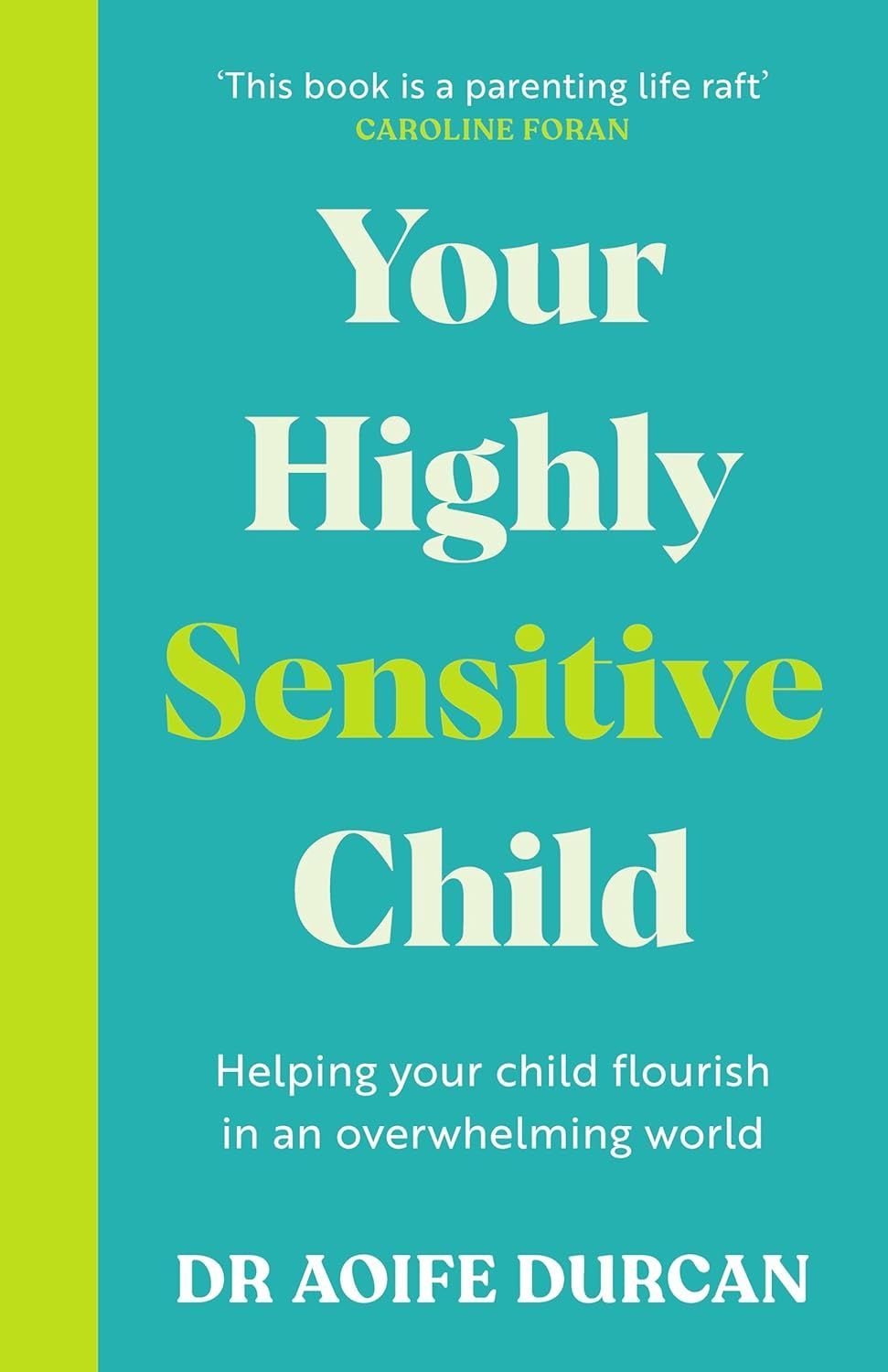
“My biggest piece of parenting advice is to try your best to let your child feel really seen by you. Even when their behaviour is confusing and you don’t understand, let them know you are trying to and that they mean the world to you” The goal of the book is to help parents understand their highly sensitive child as well as provide us with some tools to help them flourish. She talks about wanting children to “feel understood, validated and loved for who they are deep down…and empowered in whatever way their wonderful selves are wired”. This fits so beautifully with my main approach in therapy but oh so relevant to parenting and relationships in general – the PACE model (Playfulness, Acceptance, Curiosity and Empathy). A clear and compassionate read “It is perfectly normal for some children to seek more connection and soothing. They may want more hugs, more closeness and more holding, and that is not something we need to fear or pathologise”. I could tell straight away what a good clinician Aoife must be from the way she writes – with such connection, empathy and understanding of both parents and children’s experiences. As a parent who has (what I’d now call a highly sensitive child) it really connected with me on a personal level. Her explanation of psychological theories is amazingly clear – something which is sometimes lacking in books written by professionals. This is particularly impressive as she beautifully validates emotive topics (such as sleep and our own history). Summary This book so beautifully focuses on children and adults and, I suspect, many of us with highly sensitive children would fit the profile ourselves. It will be a great help to many – providing ways to support both our children but to help us flourish as well. I knew a lot of the theory and ideas in the book (as a psychologist of 20 years I was relieved about that!) but for parents there is a wealth of new knowledge and for me it was a useful reminder. Here is a breakdown chapter by chapter: Chapter 1: Understanding your sensitive child Aoife talks about what sensitive means (something I would love to explore further with her in terms of temperament, neurodivergence and early experiences – all of which she describes but something I want to know more about). Aoife describes “the difference between high sensitivity and these other forms of neurodivergence is that they encompass features of a distinct brain style beyond sensitivity alone”, acknowledging that there can be concern that identifying a trait of high sensitivity may lead to a missed diagnosis of other forms of neurodivergence and that it has been somewhat controversial a term in the neurodivergent community. She talks about the importance of co-regulation (something I bang on about a lot!) and describes goodness of fit (how well our child’s environment fits their unique needs) which was a good reminder to me that my children need different things to thrive. Throughout the book Aoife weaves in case studies, and I love the way she shares a deep understanding with other parents who have often experienced “huge amounts of self-blame and shame” when looking after their highly sensitive child. I love her deeper dive into sensitivity, where she outlines Dr Elaine Aron’s main characteristics of sensitivity with the acronym DOES (depth of processing, overstimulation, emotional reactivity and sensing the subtleties). Sometimes I thought I was reading specifically about my son (and sometimes myself!). Chapter 2: Your child’s window of tolerance “If we keep coming back to the premise that our children are acting mainly from their emotional brain and an underdeveloped ability for impulse control, it helps us understand a little more. The more we pause ourselves and imagine how it feels to be in their shoes, their behaviour often makes sense”. She describes highly sensitive children as orchids, with very big hearts and highlights that there is an increased activation in areas of the brain which are associated with awareness, integration of sensory information, empathy and action planning (I’m going to ask more about this research when we have our live). It made so much sense that children with more finely tuned nervous systems, who detect danger more easily than others are more likely to be on edge. A much better way of understanding children who are struggling than thinking their behaviour is bad – they are just responding to what signals their body is sending to them. After helping us understand what may be going on for highly sensitive children, Aoife talks about the window of tolerance, sleep, transitions and the three R’s (regulate, relate and reason). I scribbled a lot on this chapter as it resonated so much with me and served some lovely reminders to me as a parent and psychologist, particularly when Aoife highlighted how children can become ashamed of their actions (that they have little control of) and how anger can turn to tears when we respond with empathy and kindness. Chapter 3: Our own life history I love this chapter! Many parenting books forget that we are key to our child’s emotional wellbeing and leave us out! Aoife talks about our own critical voice, comparing ourselves with others, vulnerability and our emotional and physical health. She outlined the RAIN of self-compassion model (Recognise, Allow, Investigate and Nurture) which was new (and helpful) to me and, I suspect, draws on her experience of working with adults I suspect). It is written warmly and compassionately and is much more comprehensive than you normally see. There was not one inch of parent shaming which can sometimes slip into books (inadvertently). Chapter 4: How we learn to protect ourselves We often focus on what we as adults are getting wrong but Aoife clearly outlines how we as well as our children learn to cope to protect ourselves (which fits really nicely with attachment theory which I draw on heavily in my work). She describes “protectors” such as perfectionism, people-pleasing, self-soothing (I’d always thought of this as a good thing) and control. Helpfully, this chapter includes practical grounding and soothing techniques. Chapter 5: Temperament, being ‘shy’ and understanding anxiety “ separating from \us will often cause our more sensitive souls stress. The stress makes so much sense (we are their safe place)l…In an ideal world, we really want the childcare setting to be another nurturing, warm and attuned relationship our child has in their life” Aoife focuses on some of the things that highly sensitive children may find harder in this chapter – whilst often reframing them with a positive spin e.g. the ‘pause to check’ system). She talks about separation anxiety, temperament, childcare, big emotions after school and helping children move into their “optimal zone of tolerance” to help them learn new skills without feeling overwhelmed. I like the way worries are framed as a powerful coping protector that manifests when we feel scared, sad or like we are not good enough…it helps to go straight to the underlying need our child may be communicating rather than get caught up in the cognitive content of the worries – to feel safe, loved, validated, understood and accepted, True confidence comes from knowing deep down at your core that \you are a worthy person, and you are lovable as you are. We can be confident and quiet, and being ‘shy’ is not a negative thing According to Aoife, 70% of \highly sensitive people identify with the trait of introversion (not mine). I love the term “introverted extravert” (a new one to me) whereby the extrovert in someone gets a lot from the external world but their nervous system is easily overstimulated (remember DOES from chapter 1?). there are some \helpful tips on supporting children who are described as “shy” – both for them and for others trying to get them out of their shell (more about the others’ needs than the child’s?) Certainly something I've been guilty of). Chapter 6: The empath “Learning to be with painful feelings, without trying to fix them, is so connecting for our relationships -especially for empaths. We need to understand that we can't talk them out of their feelings. The only way their emotions move is by giving them the space to be felt. It is only then we can begin thinking of ideas that may help ” This chapter helps (worn out) parents understand their child's big feelings. Aoife talks about anger, getting suck in emotions and how important it is not to dismiss them, which can lead to a deep sense of confusion. She describes how her own deep-feeling nervous system has experienced an emotion so strongly that it takes time to lift and, when it hasn’t been seen and understood, it takes longer to process. This was so helpful for understanding my son, who picks up on emotions so easily (he even knows when I'm getting my period before I do!). Chapter 7: Criticism and being ‘good’ Criticism can feel so painful for highly sensitive children – even when it's meant as constructive feedback. Aoife talks about how important it is to validate their experiences, even if their reaction seems a bit extreme to us! She describes ways to help them find their voice and move forward when feeling criticised. This chapter also talks about how highly sensitive children can get really upset about doing the right thing or feeling like they have disappointed you. I love her point that we may expect more from them as they are so emotionally in tune and articulate – but this can miss the point that they are driven mainly from their emotional brain with limited impulse control. She talks about boundaries and children who apologise too much (or too little!) as well as how to support them when they feel misunderstood. Chapter 8: Navigating painful emotions “Sadness can be a familiar emotion for a sensitive soul. Feeling the world deeply and noticing how painful life can be sometimes, and experiencing grief, loss, feeling excluded, rejection and being misunderstood can evoke feelings of sadness and loneliness.” Its so hard when our children are experiencing deeply painful emotions and we feel a bit stuck as to what to do., this chapter talks about trust, grief, sibling relationships and feeling different, outlining ways you can support your child to make sense of their experiences and emotions – through their connected relationship with you. Chapter 9: Understanding our strong-willed children Aoife goes back to basics in this chapter, delightfully explaining why some of the traditional behavioural methods of parenting are a particularly bad fit with our more strong-willed children (as I have learnt through experience over the years!). she talks about the need to give children a sense of agency, control and flexibility and provides a lovely reactivity guide (screening list) to help us understand what our children may be communicating with us. Again, Aoife highlights the importance of co-regulation as well as understanding and managing our response. She also describes how repair is key – something I talk about a lot. Time in is outlined (as an alternative to time out…something that I’ve talked about before in previous posts). Chapter 10: Sensory sensitivities As psychologists (particularly those of us that trained 20 years ago!) we weren’t well versed in the importance of sensory profiles – but it is now so clear that our mind and body work together and that we need to be aware of both if we are going to support children’s emotional and behavioural development. This chapter outlines the different senses and how our bodies read our environment, which is hugely different for each and every one of us. She talks about both parents' and children’s sensory needs and how we can empower sensory-sensitive children. Chapter 11: My wish for every parent The last chapter of Aoife’s book is beautifully written, outlining what she wishes for parents. She talks about comparison traps, trusting yourself, asking for help, avoiding self-blame and bringing more fun and play into your (and your children’s) lives. I am always a bit biased to chapters about parents as we are so important if we are going to be the best parents we can be…and Aoife highlights this wonderfully here.
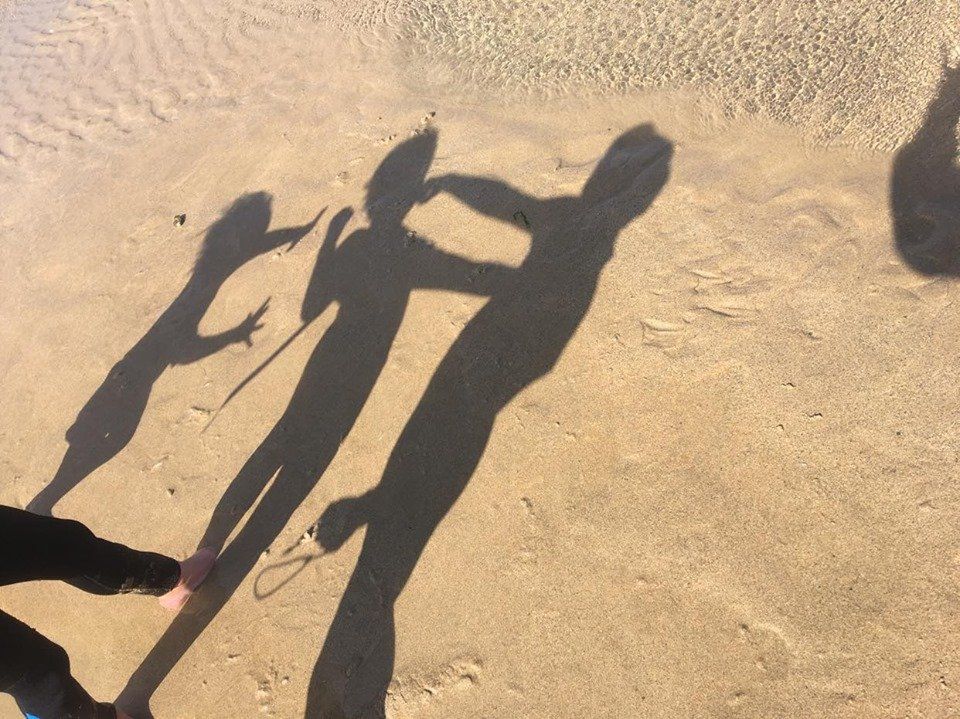
“Playing with our kids and really getting to know them is a little like scuba diving. From above the surface of the water, it’s hard to know what’s really happening down there under the waves. But when you take the plunge, you discover this whole other world: dynamic, real, fascinating, beautiful and full of life” (page 5) Why is play important? · Play is in children’s nature – it’s their first language and helps them learn with creativity, joy and connection · It builds crucial skills and reduces unwanted behaviours. Children build confidence, resilience and self-understanding through play. And with this comes a reduction in fighting, rudeness and tantrums (a reduction not an extinction – these are all part and parcel of childhood!) · It gives children appropriate ways to express and process their emotions and can be a powerful way to process what has happened and heal after difficult experiences. · It can help us connect with our children and enjoy being with them. It helps us understand their inner world and delight in them, building their self-esteem What if we don’t know how to play? (something I hear from lots of parents) · If we struggle to play it’s not our fault – our brains grow and change since we were children. · We have to relearn what it means to think and play like a child · For those of us who haven’t had playful parents when we were growing up it may be harder – but it’s never too late to learn What are the strategies that the authors talk about? This is a very brief summary – it’s well worth reading the book for a full exploration with lovely illustrations, example and science behind the strategies. · Think Out Loud o Why? This helps children understand their thoughts, feelings, wishes, intentions and desires more. When we do this it helps them learn that others can understand them and help them understand themselves. We help children to pay attention to what is happening inside themselves so they can develop positive, conscious, international responses rather than the default reaction with no awareness! o How? We do this by observing and narrating what we see in our children’s play, commenting on mental and emotional stages. We do this by observing and attuning, coming up with a hypothesis, saying it out loud (don’t worry if your guess is wrong – your child normally lets you know!) · Make Yourself a Mirror o Why: help children understand their emotional life and enhance their connection with and empathy for others. o How do we help children exercise the empathy muscle? (love this term!). Observe and attune into what your child is feeling with your body, face and voice, activate your child’s mirror system and remember empathy is mainly conveyed non-verbally (as well as verbally) · Bring Emotions to Life o Why: help children recognise, manage and express feelings. o How: observe and attune (as you may have noticed, we always start with this!) watching for emotional cues, act out your part adding emotions to your character (if your child invites you into their play) – alternatively, touch on emotions as the narrator of their play. · Dial Intensity Up or Down (this feels more about general parenting that play) o Why: this helps children regulate their emotions and actions when they are struggling and helps them learn that someone will be there for the when out of control. o How: Observe and attune – looking out for your child becoming dysregulated. Chase the why (I love this phrase) – see if you can work out what their dysregulation may be about? Look beyond the behaviour (if you want to learn more about this read Mona Delahooke’s work – it’s brilliant!). Dial the intensity up (through cooling things off ) or down (through starting low and going slow) Regulate and repair o Scaffold and Stretch: Why? Help children learn resilience in the face of difficult situations and show them others can show up when things get hard. How? This is about helping your child face something difficult in a low stakes way – through play. Firstly, observe and attune – to see if they may benefit from some support. Then offer scaffolding and stretching – it’s getting the balance right between not taking over when there’s a little struggle (my tendency!) and not letting them struggle so much they get stressed and don’t learn… Narrate to Integrate · Why? using stories (obviously my favourite thing!) to help children understand and deal with difficult situations. · How? Observe and attune (did you guess that?!), oscillate (between different halves of the brain – use logic and emotions), integrate and elevate. Set Playtime Parameters Why: boundaries teach children how to make positive decisions and help them feel safer. Children need limits, connection, structure and nurture How? Set some rules for play by taking care of yourself and of the space (try not to make it too chaotic!). Remember you are the pit crew not the race engineer (!). If you’ve had to set a limit then acknowledge the desire but keep the limit and offer alternatives. The authors set some good ideas for transition tips (as transition out of play can be HARD!). Finally, Tina and Georgie end with the importance of being playful outside of the playroom. For those of you that have read my parenting handbook and know about my love about the PACE model you’ll have guessed that I was pleased to see this in! Overall, a great read…well worth a delve
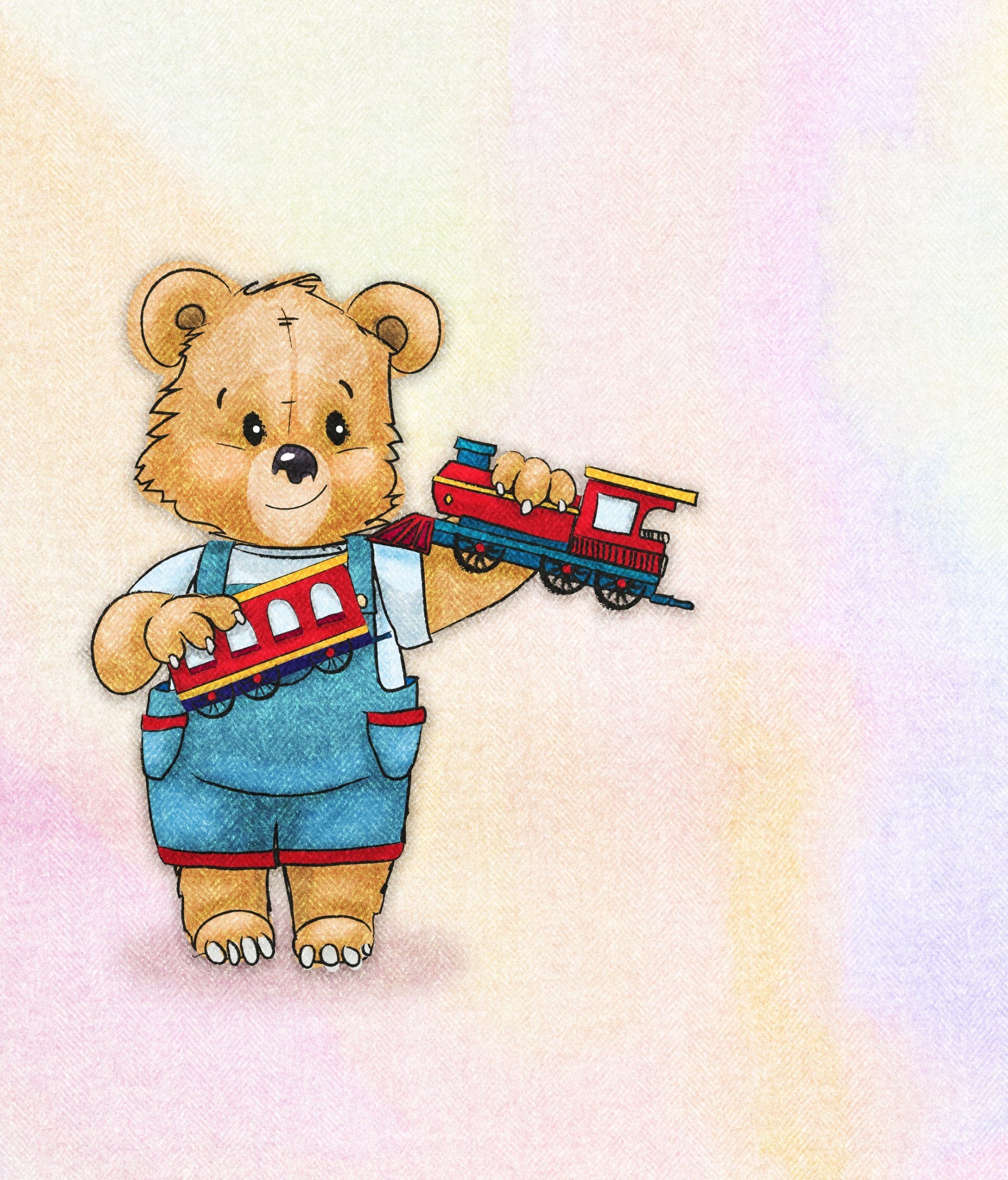
Little children can be so confusing (and confused!). Sometimes it’s hard to know what they need from you - a three-year-old demands that she wants her cheese in a big piece one day and then cries because it’s not cut up the next. She wants you to hold her hand to go to the toilet in the morning, but later gets cross when you try to do the same. We’ve all been there, faced with the - sometimes baffling - behaviours of the small humans that surround us, wondering how to respond to their inconsistent requests. Perhaps it’s reassuring to realise that these seemingly random behaviours are actually quite natural - stages through which each child progresses. In a bid to help you support your growing pre-schoolers more effectively, this blog talks about some of the things (there are many!) happening inside their heads and how you can support them with what’s going on. What’s Happening Inside a Three-Year-Old’s Brain?
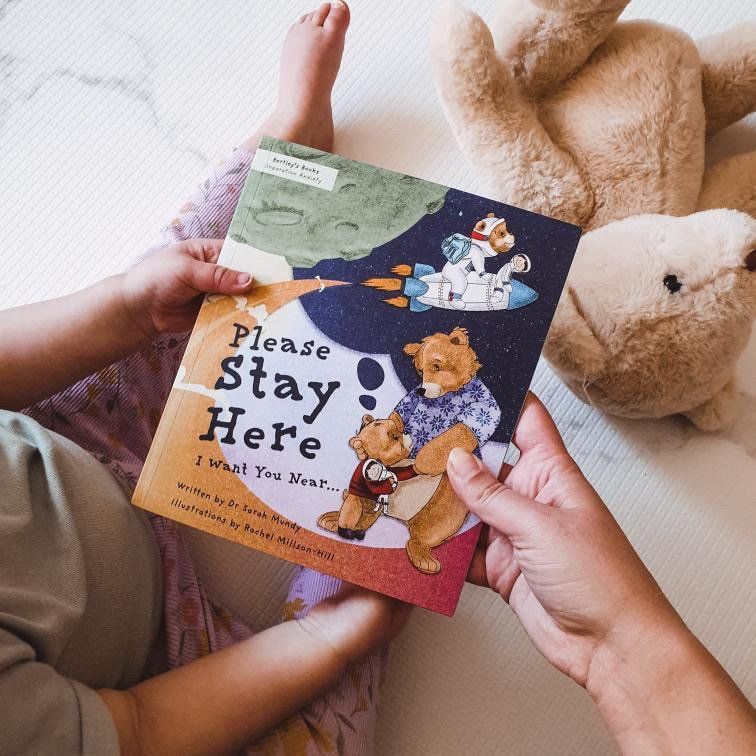
What was your favourite story when you were growing up? Was it a traditional fairy tale like Cinderella? Was it a popular picture book like The Very Hungry Caterpillar or The Gruffalo? Or was it a great adventure story like CS Lewis’ Narnia series or JK Rowling’s Harry Potter? Mine was Dogger by Shirley Hughes. Funny that the first book I wrote was about separation anxiety! For many of us, sharing and reading books was an important part of childhood, even more so before the advent of distracting screens and 24/7 streaming. I have fond memories of curling up in bed, half asleep, as my mum or dad read to me complete with silly voices and giggles aplenty. It's not just books though - you can make your own stories up too. I tell my little one a story about “Grizzly Bear with the Curly Hair” every night. It’s evolved to be a lovely family tradition, with my older children sometimes coming to join in. This is a wonderful way to stimulate both mine and my children’s imagination and what I most love about it is how the narrative is co-constructed – I am no longer allowed to be the sole story-teller, my son has to be part of it too! A 2018 research study found that nowadays only 30% of parents read to their children daily and I can’t help feeling that’s a bit sad. Especially given the many benefits of sharing story time go far beyond pure entertainment.
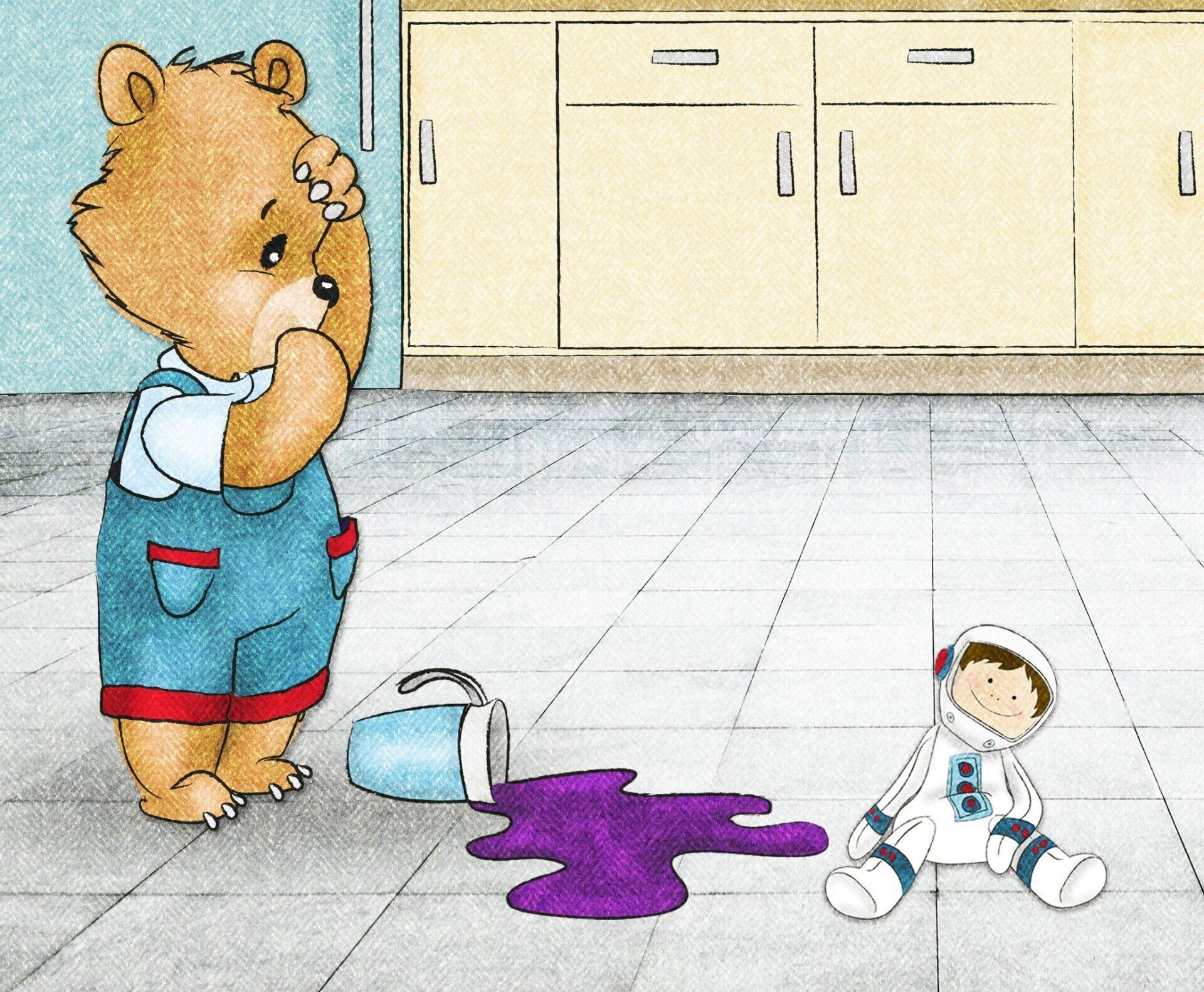
I thought I’d do a post on guilt and shame, feelings which are often used interchangeably but, from my understanding are pretty different. A quick whizz through some child development When we are little, particularly when we start testing the boundaries during toddlerhood, parents need to intervene to keep children safe. For those of you with little ones the word “NO” probably comes out more than you would like it to! This is a normal part of development – children exploring without an understanding of risks, and needing adult involvement to know when to stop. When a child is asked to stop doing something, which was most probably led by curiosity (can I touch that hot thing in the fire place?!), they are likely to experience shame. It’s not a nice feeling but is quickly regulated when a parent explains their motive and repairs the rupture in the relationship. “I’m sorry that I raised my voice, I know you were just exploring but it’s dangerous to touch fires” and so on. This gives the message that the parent is still there for the child and that they are accepted for who they are. The parent is showing them that their behaviour not OK, but that they are. This sort of parenting, when reasonably consistent, leads to a child feeling guilt rather than shame. “Oops, I shouldn’t have done that, how can I make amends?” (obviously not so clearly thought out for little ones but you get the gist). .
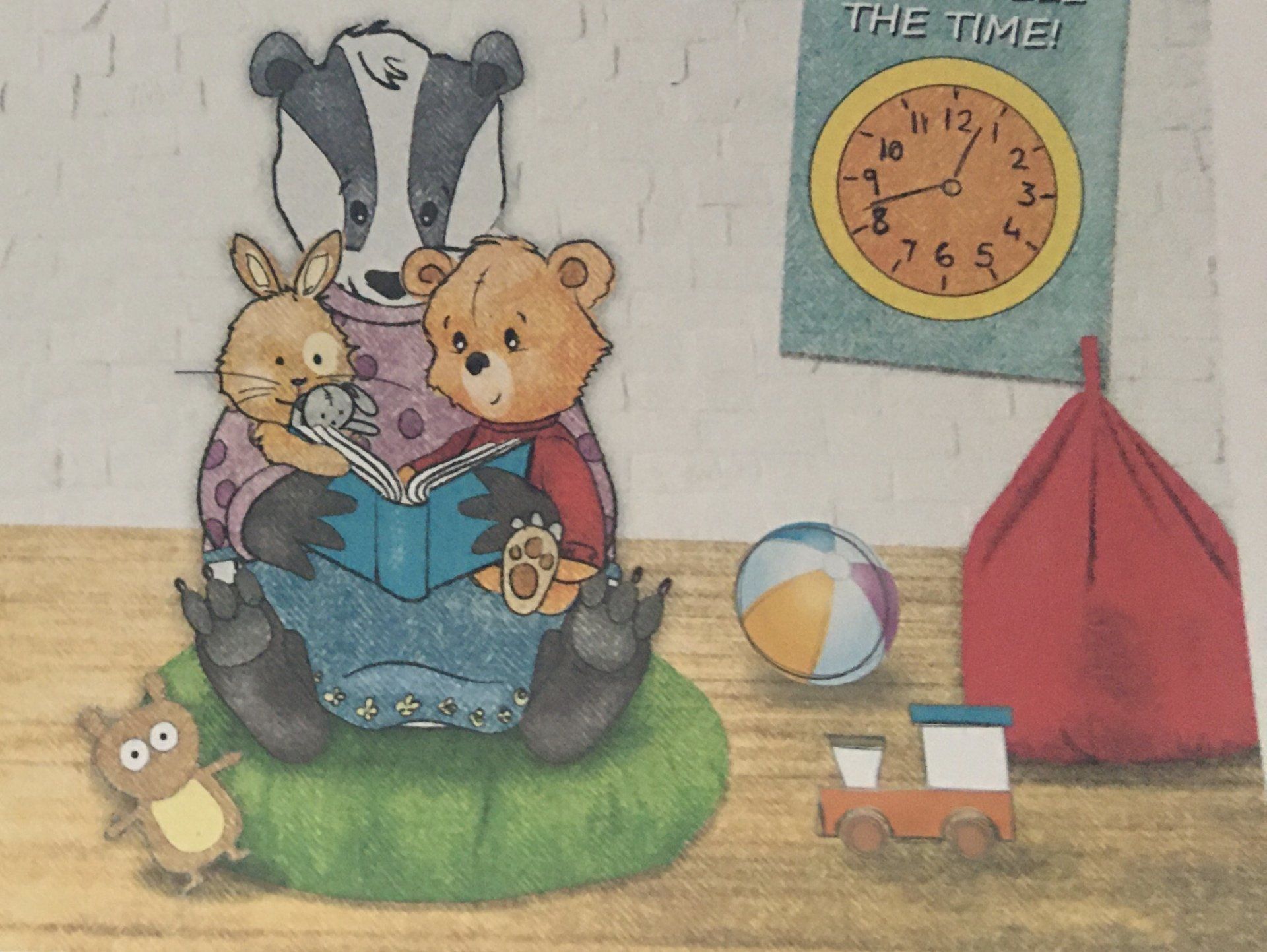
As a newborn, we look to our parents for everything. To feed us, to comfort us and to protect us. If they give us this safety and security, a healthy emotional bond develops. Research shows that this attachment relationship is a crucial building block of a child’s development, helping them to grow socially, emotionally, behaviourally and intellectually. But what happens when children begin to spend time with other caregivers, outside of the home and away from their parents? Do they develop similar relationships with the nursery staff, childminders or pre-school teachers that look after them? And what does this mean for you if you’re working in Early Years?
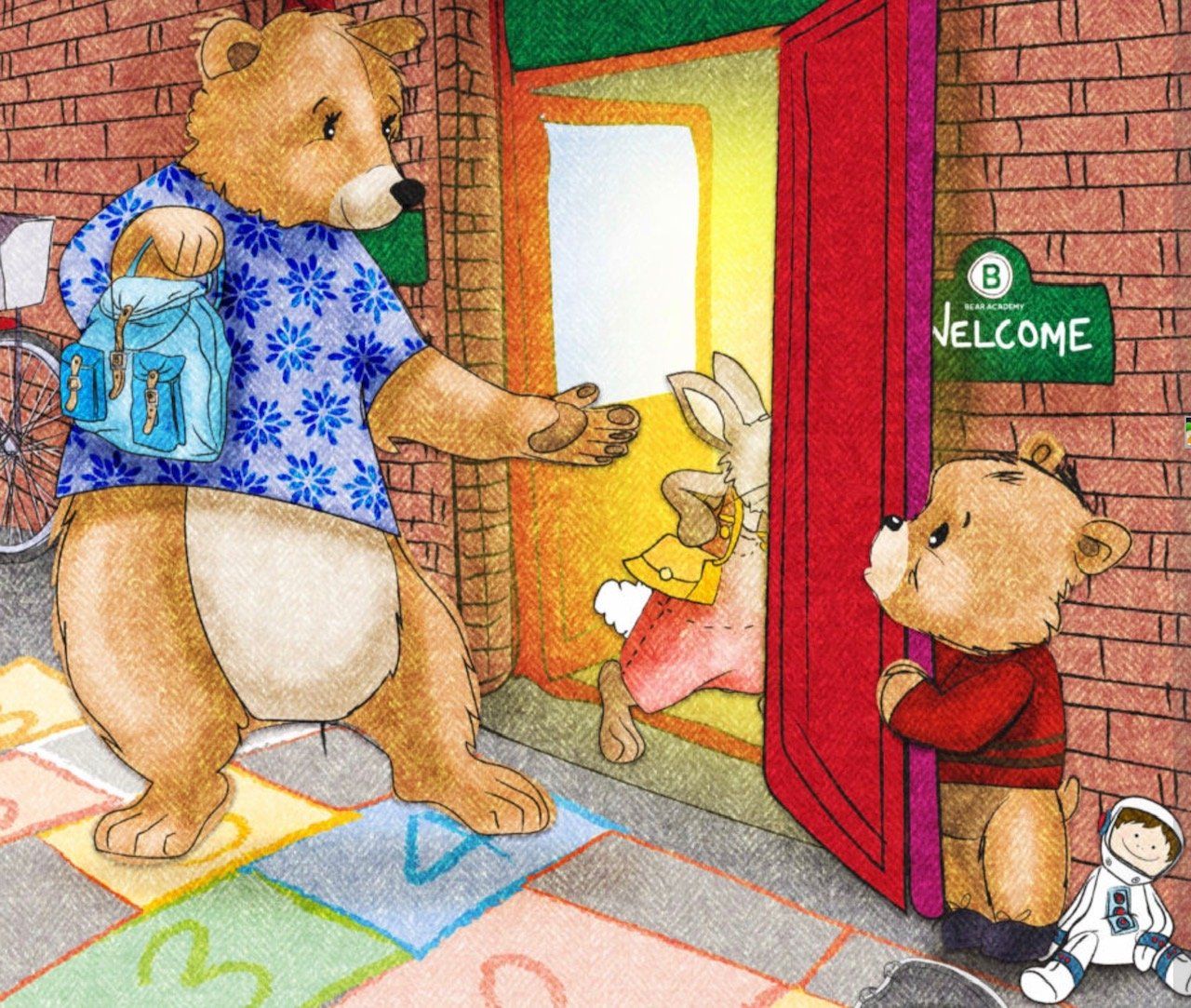
If you work in an early years setting, you’ll be quite familiar with the scene. You’re welcoming the children and getting them settled at the start of the day, checking in with them and showing them what activities you have planned. Suddenly, you hear shouting and crying as a stressed-looking mum tries to detach her small child from her leg. You feel for her, you really do; this child regularly clings to her on arrival - the anxiety is palpable. It’s distressing for everyone involved. For Mum, for the child, for the other children who are already in the room, and not least for you. You know from experience that they will settle down and be OK, but that doesn’t make it any easier in the moment. And you know, too, that poor Mum has headed off to work feeling guilty and upset, so it’s unsurprising when she phones 15 minutes later seeking reassurance from you. These experience are likely to be more pronounced at the moment, with children having fewer, if any, opportunities to practice separating from their parents, with collective anxiety at a huge level and with normal settling in sessions, with parents in the room, being unavailable. What is separation anxiety?
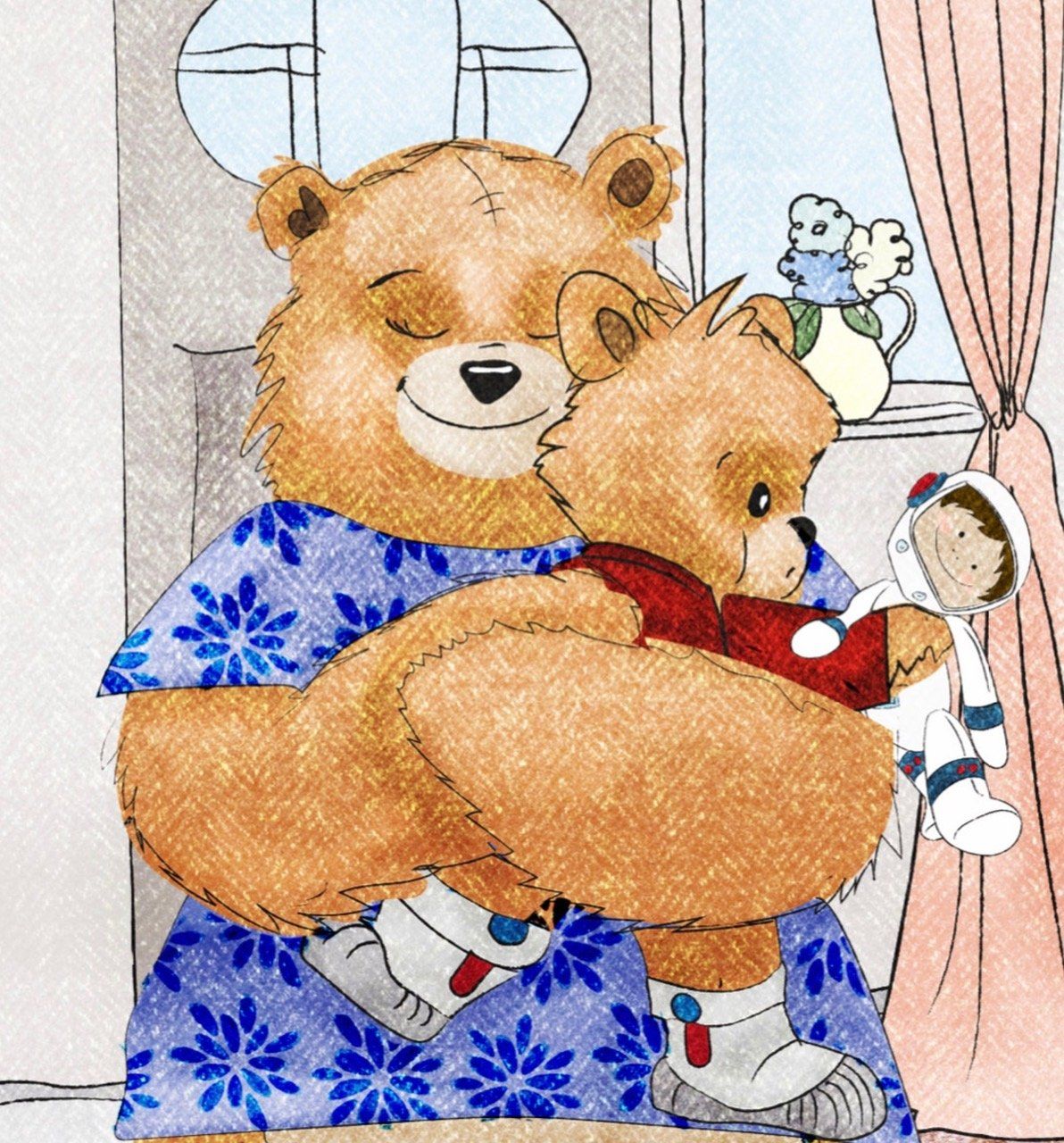
Where do I start? Attachment is a HUGE topic, with decades of research highlighting how important it is to a child’s development. But do you know what an attachment relationship actually is? And why it’s so important? Do you know what helps children develop more secure attachment relationships? With different approaches and a number of terms banded around it can feel so confusing. This blog addresses these questions and focuses upon ways that parents and educational settings can put attachment theory into practice. It is based upon my experience as a Clinical Psychologist. For over 15 years I have been drawing upon attachment theory to inform my work with parents and children. I’ve tried to ensure that my suggestions are user-friendly. As a mum of three I have learnt that theory does not always feel that easy to translate into practice. We can feel pressured to get it right all of the time (apologies to the clients I worked with before having my own children!). The beauty of attachment theory is that we don’t have to be perfect. Just good enough. As with anything scientific there can be a lot of jargon – I have put the key words in italics and tried to write with minimal psychobabble. I do hope you enjoy it! What is attachment (in a nutshell)?

In case you hadn’t noticed, Christmas is coming, and fast! It’s different this year, without nativity plays, big get togethers and light turn-ons. But it’s still happening, as both we, and our children well know! My three-year-old is already telling me that it is “Christmas tomorrow” on a daily basis (to be fair he also thinks it’s still Halloween so he’s not particularly accurate in his understanding of seasonal activities!). He is, however, starting to get excited. He’s remembering the elves escapades from last year, asking when they are coming back (I still haven’t found them in my cluttered house!). Why I added the nightly task of creating funny Elf scenes throughout December to the already huge list of Christmas jobs is beyond me, but at least he likes it! I was also quite proud of last year’s zip wire adventure.
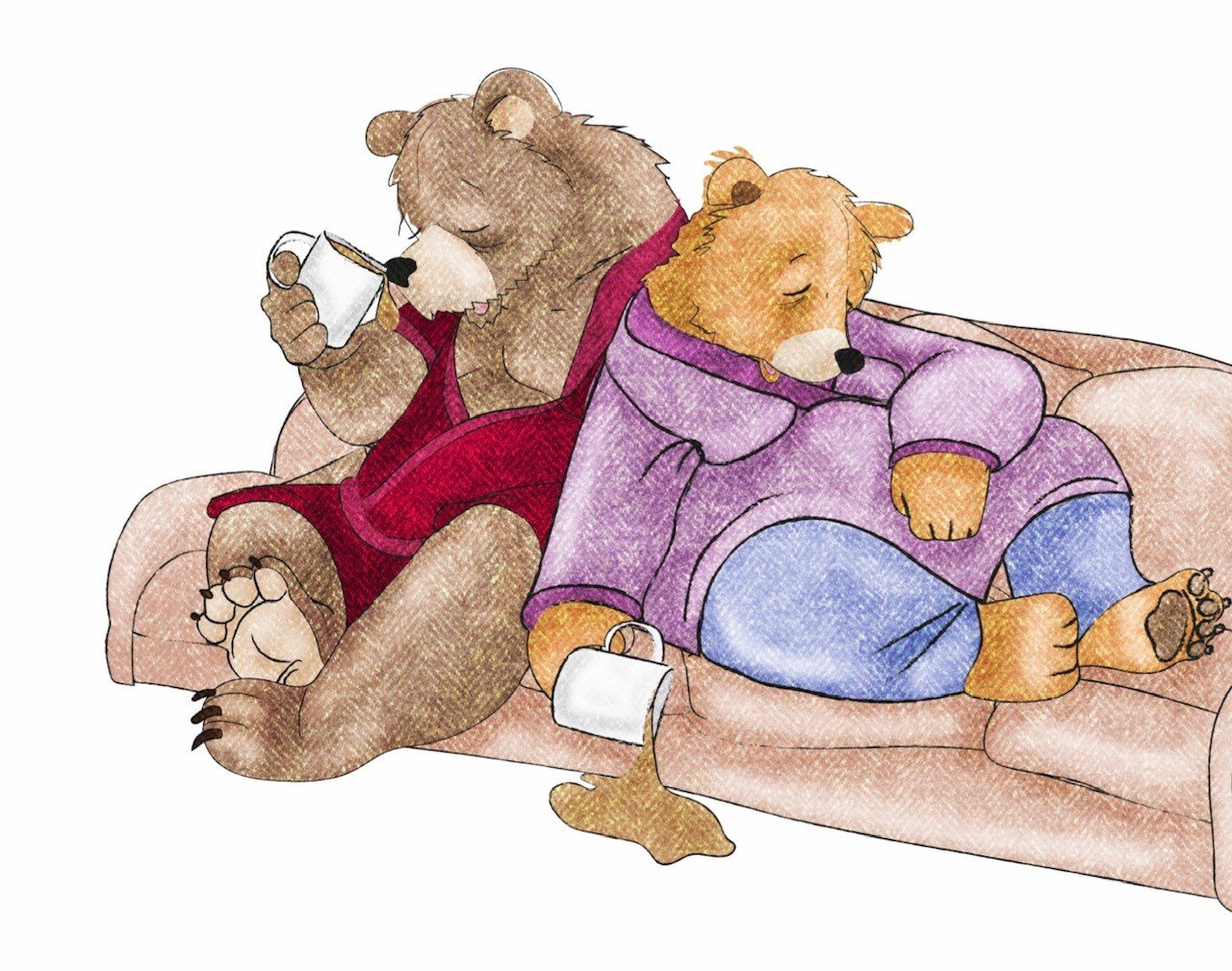
I know the gold standard for writing blogs is to deliver them on a fortnightly basis. I’ve been a bit remiss as this is my first one in months! What a better topic to start with then than why it is OK not to get things right all the time. Perfection is unobtainable, but it does seem to be something that we are pushed to do. The number of posts out there on mum guilt is astonishing. Over the last year we have been expected to juggle life in a way that does not seem possible. Many of us have been coping with (or trying to) being teachers, parents and professionals, three full time jobs all at the same time! This has left me wondering whether it’s actually possible to do anything well enough! And then along comes Christmas (gulp!). I’m hoping that reading this will leave you feeling happier with how you are doing as a parent, that you will realise that buying into the pressure to get it “right” is not helpful, and that you will learn that the attachment research highlights how we don’t need to be perfect to raise happy and healthy children. Children don’t need us all of the time. They need is a parent who knows they are good enough for them, accepts their foibles, makes and owns mistakes, and can manage their own emotional world. Forget Perfection - Strive for Good Enough Parents can feel a great deal of guilt around their work/life balance. Guilt can actually be a helpful emotion, allowing you to reflect on what is, and isn’t working. However, when you have little control over the things you want to change, it can feel overwhelming. The first thing you need to remember is that you are doing your best, and that is good enough. Interestingly, an article in the Economist reported that we spend twice as much time with our children as parents did 50 years ago (The Economist, November 27th 2017), suggesting that we are already much more active in our parenting than we used to be. “Good enough” is key to parenting. Research into attachment, which is important to children’s development, highlights how we should strive to be good enough, not perfect. A recent study on infant attachment found that parents need to be “in tune” with their babies about 50% of the time in order to develop secure attachment relationships (Woodhouse et al., 2019). So, if you’re getting it right about half the time, you’re onto something! Quality of Time is Far More Important than Quantity


